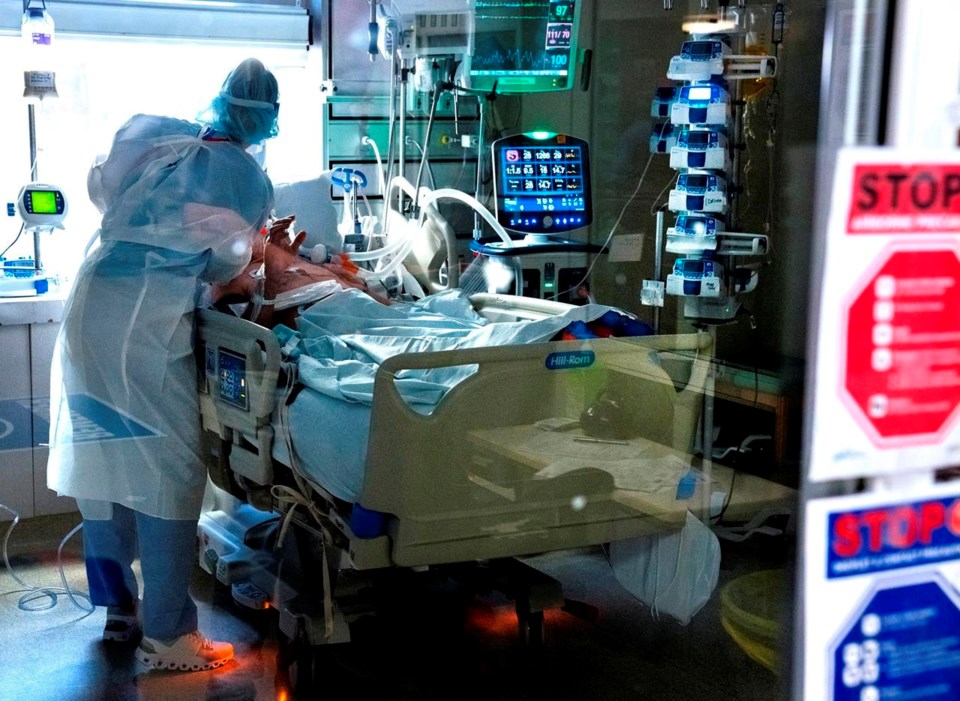HALIFAX ŌĆö The lingering effects of the COVID-19 pandemic, such as staffing shortages and a rise in disease complexity, are responsible for an increase in surgery wait times across Nova Scotia this year, according to the head of surgery in the central health zone.
Operating rooms are working at full speed to get through a backlog of surgeries from the last two COVID-19 waves, Dr. Gail Darling, head of surgery for Nova Scotia HealthŌĆÖs central zone, said in a recent interview.
During the winter and spring the health system had to ŌĆ£ramp down surgery,ŌĆØ Darling said, as hospitals dealt with an influx of COVID-19 patients and with health workers off sick because of the virus. ŌĆ£Emergency rooms were just overflowing and patients were sick; they needed to be admitted, so those patients go into whatever bed is empty."
This meant fewer surgeries could be scheduled, while hospital beds that could have been used by non-emergency surgery patients were full. ŌĆ£That definitely increased our wait time,ŌĆØ Darling said.┬Ā
As of Sept. 8 there were 24,400 Nova Scotians waiting for surgery, according to the Nova Scotia Health Authority. That number is down slightly compared to the 25,100 people waiting for surgery around the same time last year.
But even as fewer patients are being admitted to hospital with COVID-19, hospitals are still struggling with staff shortages because the virus continues to circulate in the community. As of Friday, there were 141 Nova Scotia Health employees absent for COVID-19-related reasons.
The missing workers are having a major impact on surgeries because each procedure requires a specialized team of medical professionals. In addition to the lead surgeon, there are typically two to three nurses, an anesthesiologist, an anesthesia assistant and one or two physician fellows or residents acting as surgical assistants.┬Ā
As well, there are nurses, physicians, porters and medical administrators involved in the preoperative and post-operative periods of surgical care. ŌĆ£There are a lot of people involved,ŌĆØ Darling said.
In 2019, the median surgery wait time was 76 days. When COVID-19 hit the province in 2020 surgeries slowed down, and the median surgery wait time jumped 28 per cent to 97 days. Wait times improved in 2021, when the median wait time neared pre-pandemic levels ŌĆö 79 days.
But as of July 2022, the wait time has inched back up to a median of 83 days ŌĆö up five per cent from 2021 and up about nine per cent compared to pre-pandemic surgery waits.┬Ā
The jump in wait times this year is partly due to the fact surgeries are taking longer than before the pandemic because they are more complicated, Darling said. Nova ScotiaŌĆÖs operating rooms, she added, are ŌĆ£seeing increased case complexity, certainly for cancer cases."
ŌĆ£In many cases their disease is more advanced and patients require more major or longer operations.ŌĆØ
The trend of cancer patients presenting with more advanced stages of disease than usual has been seen across Canada, with doctors attributing the phenomenon to missed or delayed medical screenings due to the pandemic.
The senior medical director for Nova ScotiaŌĆÖs cancer care program, Dr. Helmut Hollenhorst, and Dr. Tim Hanna, a non-melanoma skin cancer specialist in Kingston, Ont., have both said in interviews that their cancer patients had been presenting with more advanced stages of cancer than normal. Both said delayed or missed appointments due to the pandemic were likely to blame.
Despite these challenges, Darling said there are plans to lower wait times and increase the number of scheduled surgeries in Nova Scotia this year. Darling said a new pre and post-operative program that supports joint-replacement patients recovering at home is expected to expedite surgical care and keep more hospital beds available.
ŌĆ£The good news is we are already up to 97 per cent of pre-COVID volume,ŌĆØ Darling said of current surgical capacity.
Some hospitals are also asking medical staff working in surgery to come in for extra shifts on Saturdays in order to ŌĆ£catch up on cancer backlogs,ŌĆØ Darling said. ŌĆ£Staff are stretched and everybody has been going the extra mile. TheyŌĆÖve done so much, but weŌĆÖre still strategizing for how to do more."
With extra shifts and more efficient surgery procedures, Darling said she hopes to surpass the pre-pandemic surgery capacity and perform an additional 2,500 surgeries this year compared to 2019.┬Ā
Darling said goals like this one are only possible because of the provinceŌĆÖs committed health-care workers. ŌĆ£Our staff are incredibly dedicated and patient-focused, and even when theyŌĆÖre stretched thin and tired they say theyŌĆÖre doing it for the patients."
This report by The 91įŁ┤┤ Press was first published Sept. 9, 2022.
---
This story was produced with the financial assistance of the Meta and 91įŁ┤┤ Press News Fellowship.
Lyndsay Armstrong, The 91įŁ┤┤ Press



